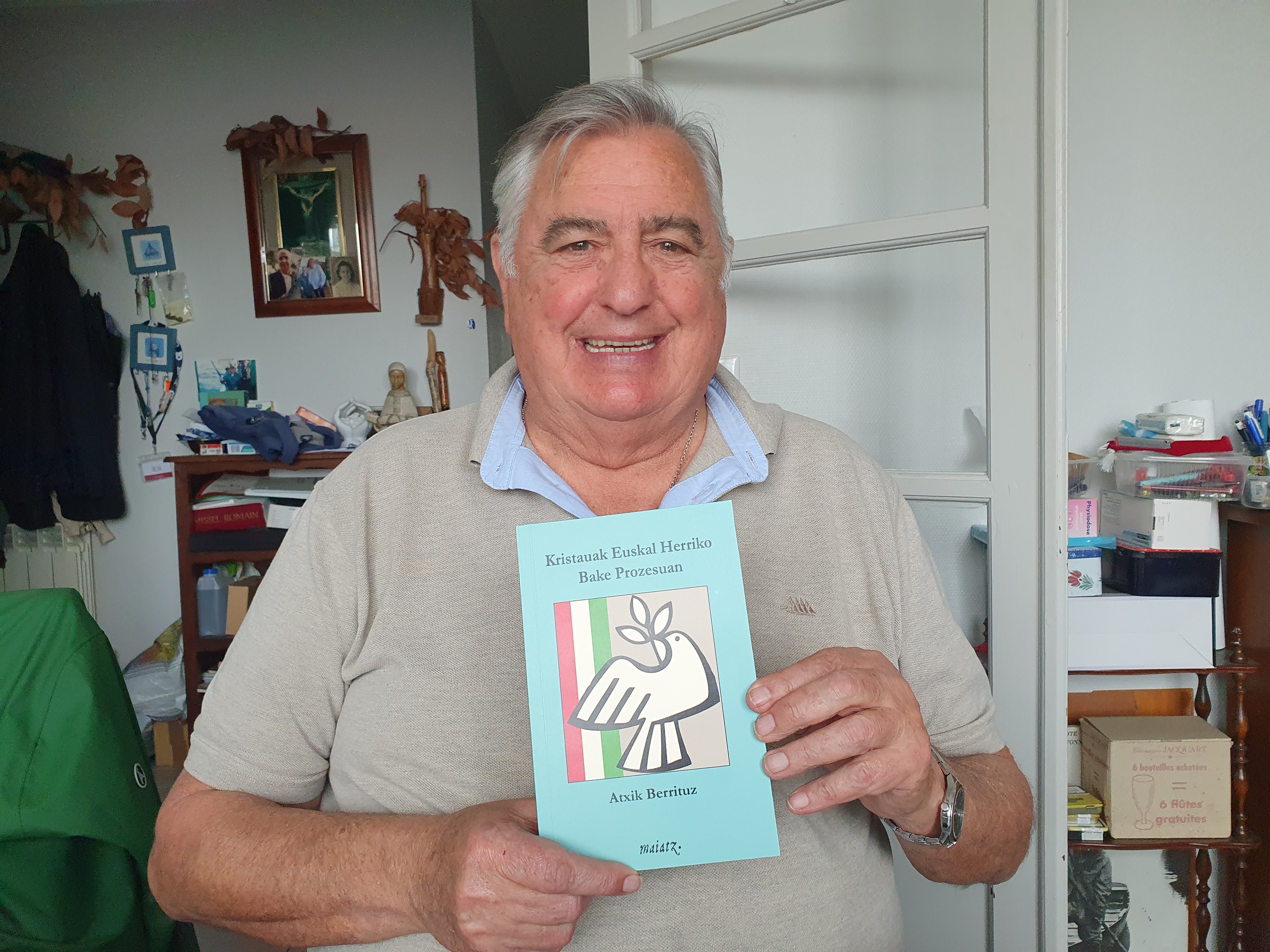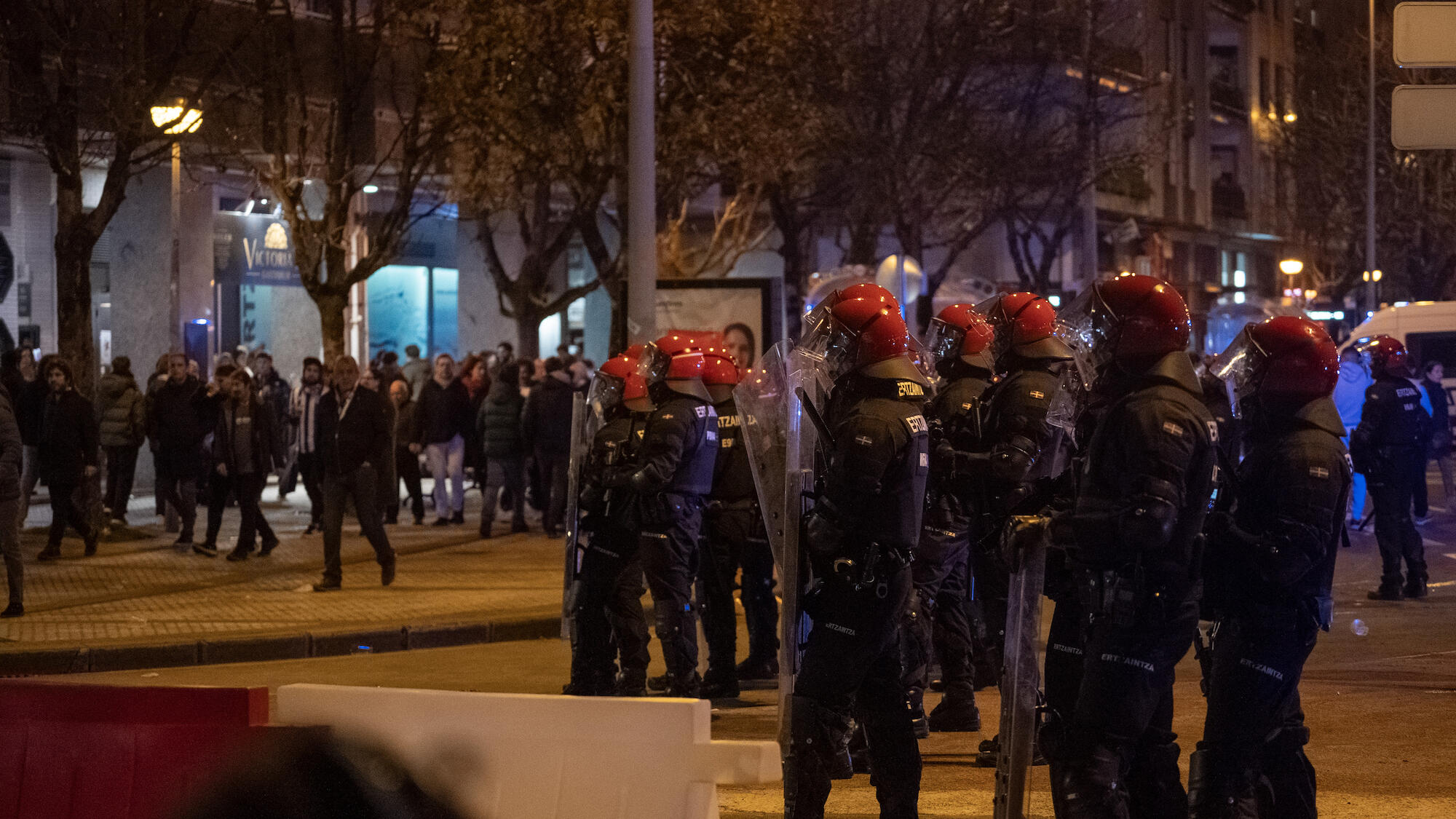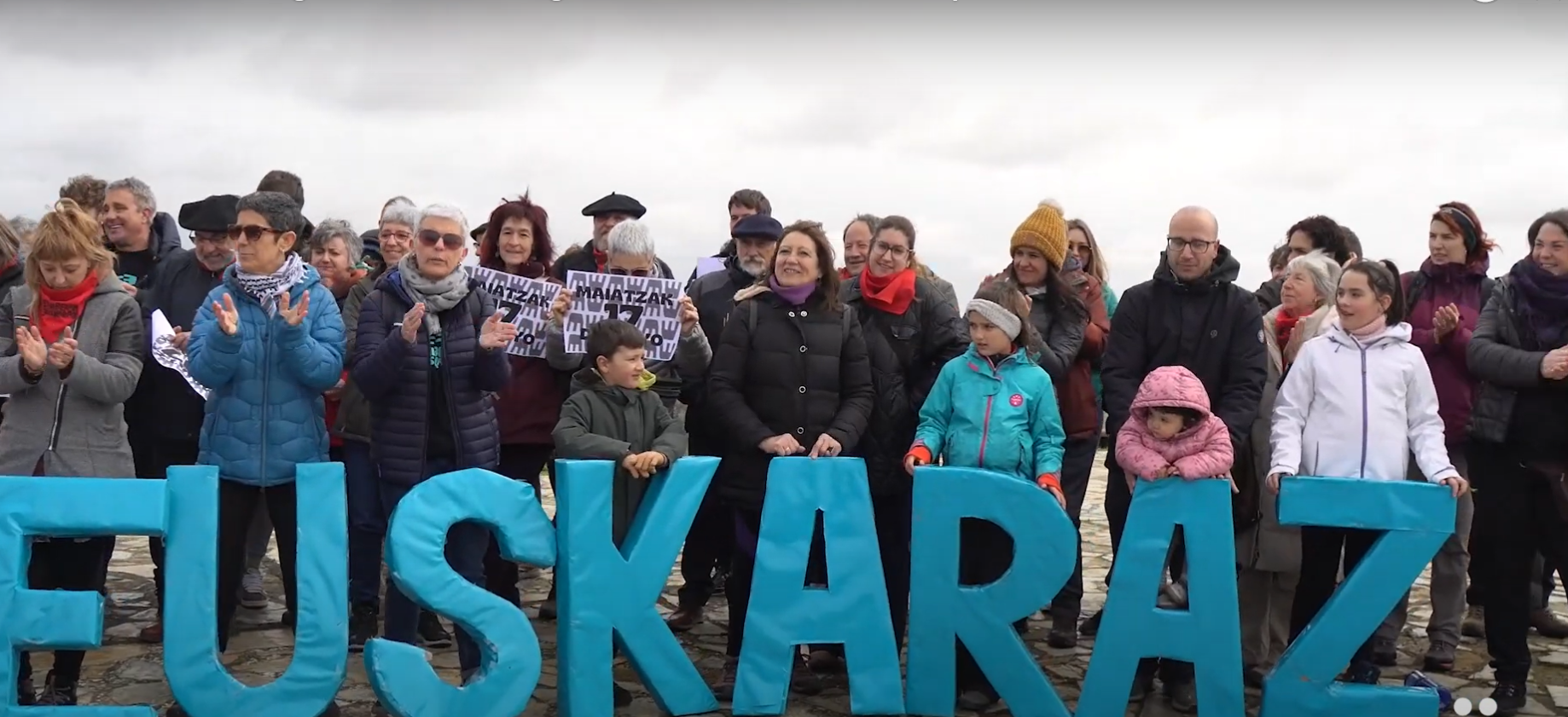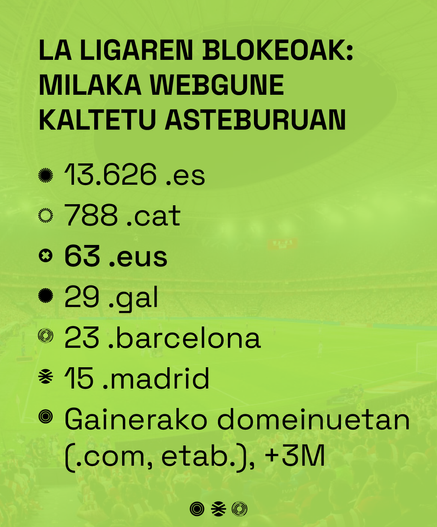Translations in search of readers
- At the end of September, St. Jerome’s Day was Translators’ Day. EIZIE hosted the Universal Literature 20 years round table at the San Jerónimo street library in San Sebastián.
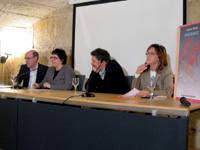
de sensu” – not literally, if not substituting meanings – is also St. Jerome’s. San Jerónimo Legetxe spent countless hours translating Basque translators into Basque to bring copies of the Universal Literature collection. The Universal Literature collection celebrates its 20th anniversary this year and the round table organized by EIZIE (Association of Translators, Proofreaders and Interpreters of the Basque Country), among others, distributed the General Catalogue of the collection. In the introduction to the catalogue, Lourdes Auzmendi, Deputy Minister for Linguistic Policy, said: “The flourishing of all literature, of course, did not come spontaneously, but suddenly, by looking at and learning from others, by widening the boundaries of an uncultivated and grassy language, based on what is supposed to be written in better and richer languages, to become omnipresent.
For great writers and writings to appear in the face of the flourishing of all literature, great translators and translations are indispensable in reverse; for translation is not a clumsy proclamation in the revitalization of a language, but a midwife and a nurse. It is a translation that brings us the most valuable productions of all languages; and a carrier that also brings news of our best literature to the square of all other languages.”
Trying to expand the collection
With the Episcopal Truth as a stimulant, experts such as Iratxe Retolaza, Xabier Olarra and Lourdes Otaegi dedicated themselves to the collection.
At the round table, Retolaza said that the greatest effort has been made in the field of translation to enrich the literary language, but that although they have quality and have been influential, it seems that the copies of the Universal Literature collection have not influenced the new generation of Basque literary creators in the same way that works translated into other languages have influenced their writers. He also praised his work in the reflection group for the Universal Literature collection, which he does not have and which he sees, for example, in the community of the Basque literary system.
Olarra spoke legally as a translator, recognizing that the translator of Universal Literature also puts a piece of heart, praising that the translator of Universal Literature does not act as a mercenary.
It is said that the gap of Universal Literature lies in social inclusion, and it is necessary to analyze what happens in order not to reach the reader. Where do you learn to read Universal Literature? Professor Lourdes Otaegi reflected as a teacher of middle education. It is said that when students are given to read copies of Universal Literature, they reveal deeper emotions, but the fact is that mediators must make an effort to know the works of Universal Literature and make appropriate choices. Otaegi also recalled a beautiful episode in the history of Basque literary translation, in which Orix gave the story of the blind boy Tormesko a part invented, and how the incident was justified by the translator himself and his former critics. Orix said that in addition to filtering the language of the text, he had made a “moral filtering” in favor of the reader’s integrity, which, according to the critics, responded to the mentality of the time.
Those who came to the table also spoke. In it were translators, writers, students of translation... and at the end, the Episcopal Truth gathered the visions of all: It will be necessary to reconsider the criteria for the selection of the translations for the future of the Universal Literature collection, so that the translations are not, above all, the works of white male writers according to Western canons. The reason for the lack of readers does not lie in translation or literature, it seems that the Basque literary reading language is affected by psychosocial problems. The mediators will have to make attempts to change the uses, in which the school was mentioned as being of vital importance. Universal Literature will have to make an attempt to adapt to the new molds and be available to any reader, so that it can be downloaded free of charge from the network, for that matter. In our country, moreover, there is no method to analyze all the issues mentioned on Translator’s Day, since there is no academic critique of translation.
More questions than answers on Translator’s Day. But that's very healthy.
“Orain, amaraunetik askatzeko, itzulpenek Veneziara naramate, Don Ibaira naute eramaten, Comalan jartzen naute puntuan, eta, ia oharkabean, euskararen gondolan pasatzen naiz Gustav Aschenbachekin batera Zizpuruen Zubi azpitik, euskararen zaldian egiten dut trosta estepetan barrena soldadu kosakoekin, euskaraz jarraitzen dut Juan Preziadorekin ere errege karrikak Contlako bidearekin bat egiten duen lekuan, munduko hizkuntza jantzi guztiak elkartzen diren bidegurutzean”.
Halaxe dio Anjel Lertxundik. Ezen ez baita ahuntzaren gauerdiko eztula Literatura Unibertsalak 20 urteotan gurera ekarritakoa. Itzultzailearen Egunerako prestatutako bideo-emanaldian halaxe zioten elkarrizketatuek ere, gauza asko ekarri dituela Literatura Unibertsala bildumak: literaturaren altxor harrobia, euskal liburuen katalogoa handitzea, trebakuntza itzultzaileentzat, euskararen normalizaziorako behar-beharrezkoa den literatura hizkuntza, irakurle ohitua… Lurdes Auzmendi, Bakartxo Arrizabalaga, Mari Jose Olaziregi, Koldo Biguri, Juan Gartzia, Anjel Erro, Patxi Baztarrika, Gorka Arrese eta Karlos del Olmo ikusi eta entzun genituen besteak beste aipatu bideo-emanaldian.
You may not know who Donald Berwick is, or why I mention him in the title of the article. The same is true, it is evident, for most of those who are participating in the current Health Pact. They don’t know what Berwick’s Triple Objective is, much less the Quadruple... [+]
The article La motosierra puede ser tentadora, written in recent days by the lawyer Larraitz Ugarte, has played an important role in a wide sector. It puts on the table some common situations within the public administration, including inefficiency, lack of responsibility and... [+]
Is it important to use a language correctly? To what extent is it so necessary to master grammar or to have a broad vocabulary? I’ve always heard the importance of language, but after thinking about it, I came to a conclusion. Thinking often involves this; reaching some... [+]
The other day I went to a place I hadn’t visited in a long time and I liked it so much. While I was there, I felt at ease and thought: this is my favorite place. Amulet, amulet, amulet; the word turns and turns on the way home. Curiosity led me to look for it in Elhuyar and it... [+]
Adolescents and young people, throughout their academic career, will receive guidance on everything and the profession for studies that will help them more than once. They should be offered guidance, as they are often full of doubts whenever they need to make important... [+]
Atxik Berrituz giristino taldeak Kristauak Euskal Herriko bake prozesuan liburua argitaratu du Maiatz argitaletxearekin. Giristinoek euskal bake prozesuan zer nolako engaiamendua ukan duten irakur daiteke, lekukotasunen bidez.
Maiatzaren 17an Erriberako lehenengo Euskararen Eguna eginen da Arguedasen, sortu berri den eta eskualdeko hamaika elkarte eta eragile biltzen dituen Erriberan Euskaraz sareak antolatuta
It will be two or three weeks since I read it, in a column by Maialen Akizu. Aner Peritz brought with him what he said on TV: “Bertsolarismo is what has led me not to interact with zis hetero men, because bertsolarismo is what has made me dissident, and also because... [+]












